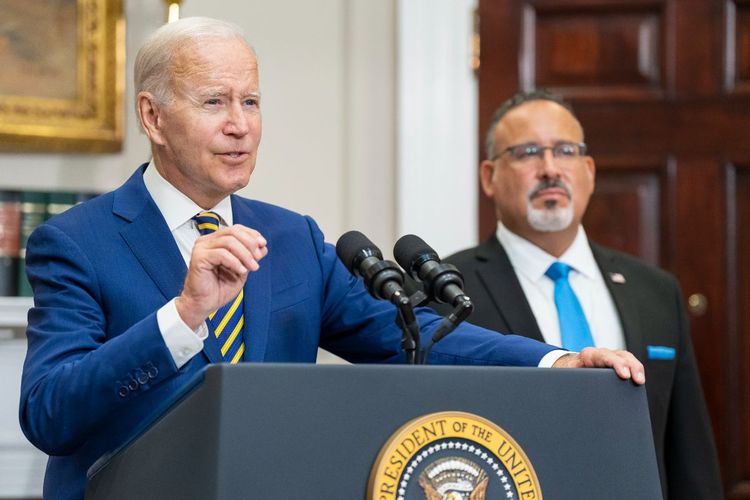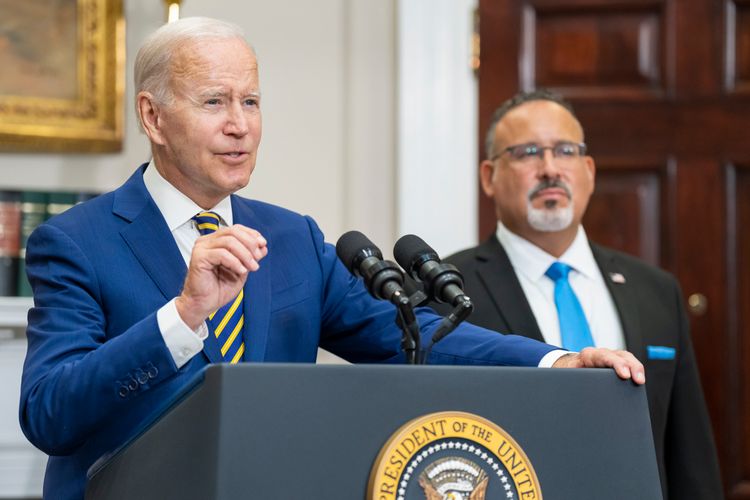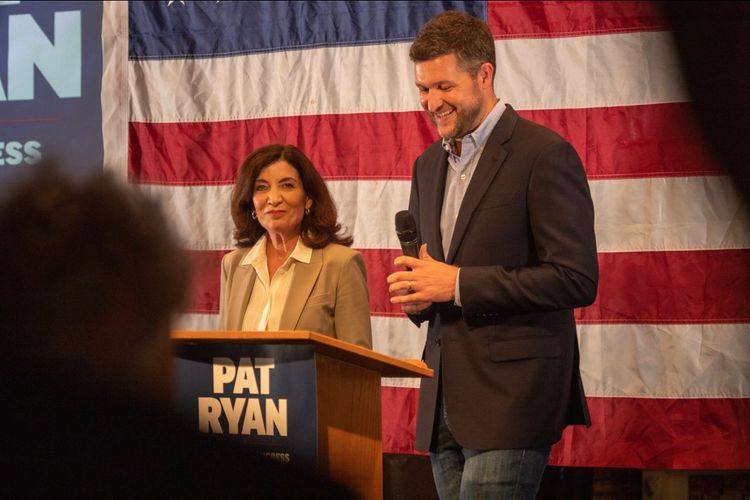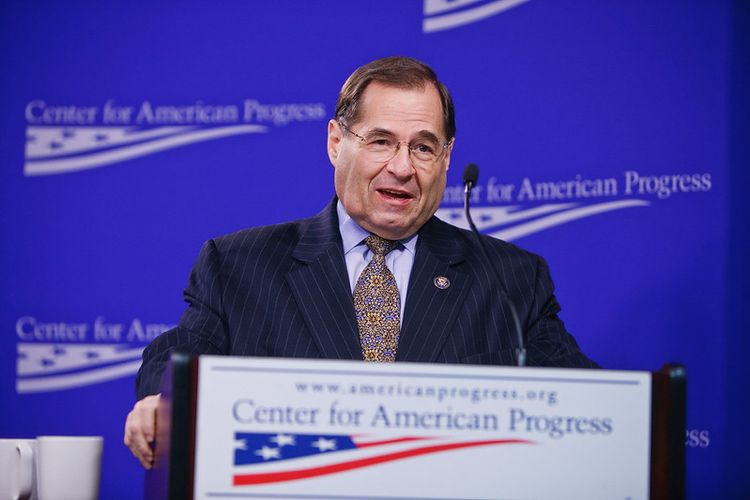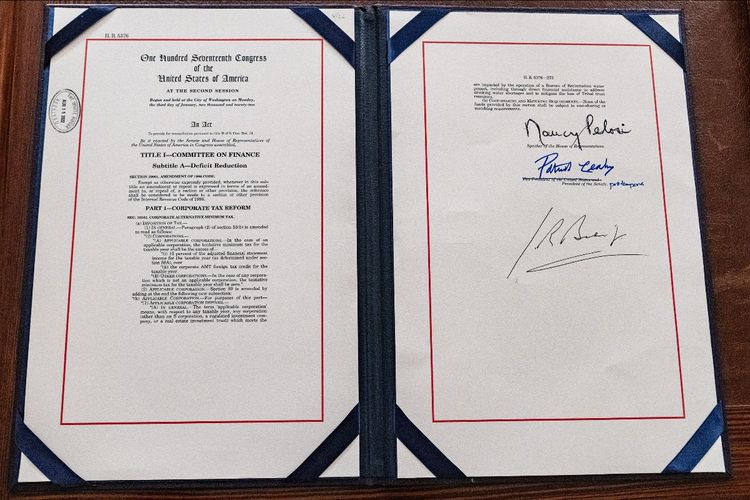Wake Up To Politics - March 24, 2021
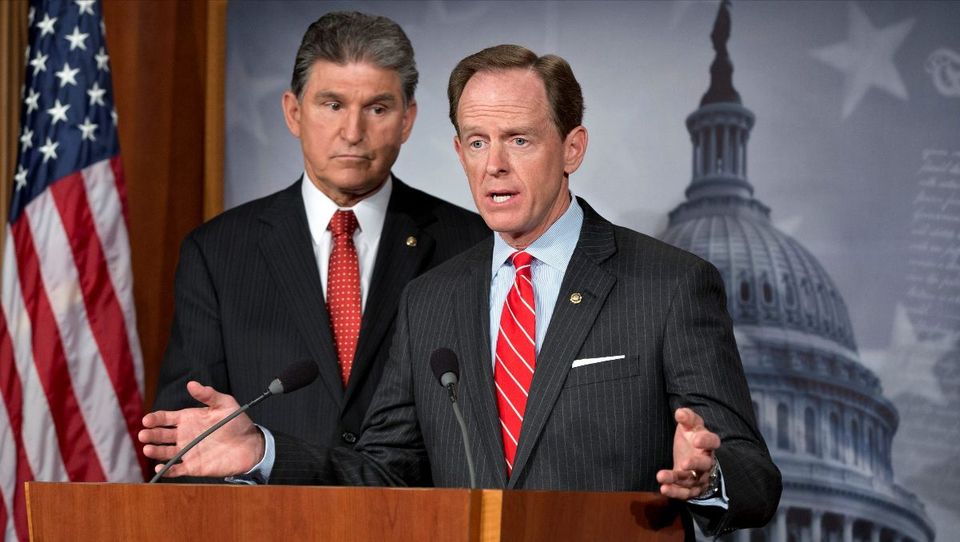
Good morning! It’s Wednesday, March 24, 2021. Election Day 2022 is 594 days away. Election Day 2024 is 1,322 days away.
Will Congress act on gun control?
After a pause in mass shootings in 2020 as the coronavirus pandemic raged, the U.S. has seen two major shooting rampages in the past two weeks: one at three Atlanta spas last week and the other at a Boulder supermarket on Monday. Ten people died in the Boulder shooting; the suspected gunman, a 21-year-old who was previously charged with assault, was identified on Tuesday and is now in custody.
According to a database by the Associated Press, USA Today, and Northeastern University, there have been seven mass killings in the U.S. so far this year, counting incidents in which four or more people died, not including the shooter. If the definition is broadened to include incidents in which four or more people died or were wounded (other than the shooter), there have been seven mass shootings in the past week, according to CNN.
This uptick in shootings means that, for the umpteenth time in recent years, the topic of gun control is back before lawmakers in Washington, D.C. And, once again, action is unlikely. Here’s a status report on some of the leading proposals to curb gun violence:
Universal background checks. The House passed a pair of bills expanding background checks earlier this month: H.R. 8 would require background checks for all gun sales, including those taking place in private, at gun sales, or over the Internet; H.R. 1446 would extend the time given to the FBI to conduct background checks, closing the so-called Charleston loophole.
84% of voters support requiring background checks for all gun purchases, according to a recent Politico/Morning Consult poll — and the two House bills each received at least a handful of Republican votes. Senate Majority Leader Chuck Schumer (D-NY) promised on Tuesday to put them up for a vote in the coming weeks; “This Senate will be different,” he declared.
However, the measures do not even have unanimous backing on the Democratic side — meaning they are short of 50 votes in support, much less the 60 that would be needed to break a filibuster. Sen. Joe Manchin (D-WV) told reporters on Tuesday that he opposes the House bills, explaining that he supports background checks for all commercial transactions, but not for private sales. Without support from Manchin — or any moderate Senate Republicans — the proposals are unlikely to be successful if they do come up for a vote in the chamber.

Manchin-Toomey. The Senate’s most prominent Democratic centrist does, however, have his name on a bipartisan gun control bill, which he co-authored with Sen. Pat Toomey (R-PA). The Manchin-Toomey amendment would expand background checks but includes exemptions for sales between family members and friends. The proposal does require background checks for sales at gun shows or Internet sales and would also close the Charleston loophole.
When it was put up for a vote in 2013, the measure was successfully filibustered, with four Democrats opposing it and five Republicans supporting it in a 54-46 vote. Toomey indicated on Tuesday that he and Manchin are having “preliminary conversations” about reviving the proposal, although it is unclear if there are now 60 votes for the bill. Crucially, Manchin told CNN that he would not support abolishing the legislative filibuster even if the gun control bill he crafted was blocked.
Assault weapons ban. The Boulder gunman used an AR-15, the same weapon that has been used in many of America’s deadliest mass shootings. He bought the gun last week, just days after an assault weapons ban was blocked by a judge in Colorado. With this in mind, President Biden called Tuesday for a national assault weapons ban, noting that he helped write the one passed in 1994, which expired and was not renewed a decade later. “This is not and should not be a partisan issue,” he said. “It is an American issue. We have to act.”
A 2019 poll by Pew Research Center found that 69% of Americans support a ban on assault-style weapons; once again, however, support is much less broad in Congress. A bill to revive the assault weapons ban failed in a 40-60 vote in 2013; 15 Democrats voted against it, five of whom remain in office: Michael Bennet (CO), Martin Heinrich (NM), Jon Tester (MT), Mark Warner (VA), and Manchin. One Republican, who is no longer in the Senate, backed the measure.
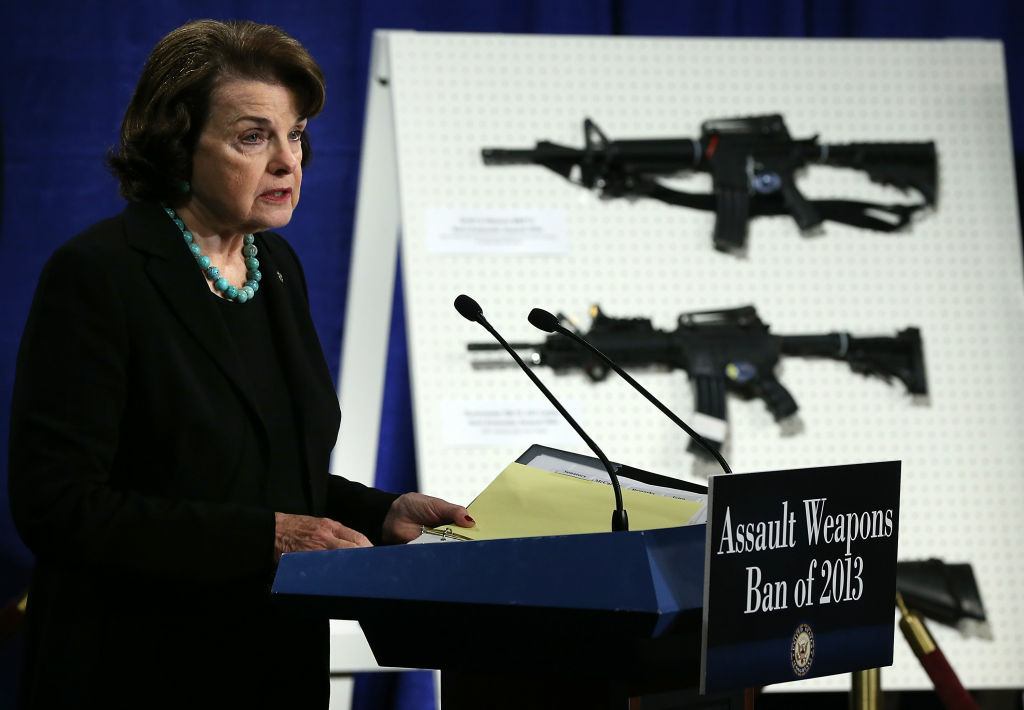
Executive action. With all of the proposed pieces of legislation yet to clear the 60-vote threshold in the Senate, the most likely actions on gun control in the near future will probably be taken by executive decree. According to the Washington Post, “for weeks, the White House has been privately exploring various executive orders related to firearms, such as strengthening background checks and community anti-violence funding.”
Biden’s team has also discussed regulating “ghost guns,” devices that are assembled at home and are more difficult to track because they don’t have serial numbers, the Post reported. White House press secretary Jen Psaki confirmed on Tuesday that Biden was mulling executive actions on guns, although she did not specify the actions he might take or provide a timeline.
“We are considering a range of levers, including working through legislation, including executive action,” Psaki said. “That has been under discussion and will continue to be under discussion.”
Share with friends, win rewards
I’m committed to keeping Wake Up To Politics completely free and growing only be word of mouth. But to do that, I need your help. Now you can help share WUTP and win cool prizes at the same time.
Below, find your unique referral link: if three of your friends sign up using the link, you’ll get access to an exclusive Zoom Q&A session with Gabe and other members of the WUTP news team! If 10 friends sign up, you’ll get a free WUTP mug. Thanks so much for your help sharing the newsletter!
Your unique referral link: *|RH_REFLINK|*
Or click here to share directly to Twitter, Facebook, or email.
Global Roundup
Contributed by Miles Hession
North Korea has tested short-range missiles in a rebuke of a sterner U.S. position. Following warnings against the U.S. to not “cause a stink” in a meeting with the South Korean government earlier this week, North Korea conducted the missile testing to reiterate their posturing with the Biden administration. Shows of force in the early days of a new administration have become commonplace in North Korean politics, but the response by the Biden administration is a departure from the more conciliatory stance the Trump administration took.
Secretary of State Antony Blinken ignored the warnings issued by the North Korean government and condemned human rights abuses in the country, and called on China to assist in denuclearizing the peninsula. That request for support will likely be ignored, as China and North Korea publicly reaffirmed their alliance in light of challenges posed by “hostile forces.”

Russia and China have jointly condemned Western sanctions as tensions rise after an icy U.S.-China meeting. The joint response came after the U.S. announced new sanctions on China over human rights abuses of the Uighur muslims. The new sanctions, coordinated with the European Union, Canada, and the United Kingdom, followed sanctions against Russia issued earlier this year over the treatment of opposition leader Alexei Navalny. Both China and Russia have strongly rejected the allegations raised by the western allies, and have also disputed claims they are engaging in “vaccine diplomacy” to curry favor in countries without supplies.
The backdrop of the joint retaliation was a particularly stand-offish meeting between the U.S. and China earlier this week. With the U.S. insistent on Chinese concessions with regards to Taiwan, Hong Kong, and Xinjiang, there was little that both sides could agree on beyond climate change. This has greatly diminished the chance of an in-person meeting between both countries’ presidents and the future of diplomatic talks. American officials seem resigned to this fact, with the U.S. and allies reconfiguring their strategies in light of a more assertive China.

Exit polls showed an inconclusive result of Israeli elections, setting up a far-right party as kingmaker. Preliminary exit polls all showed a similar result: Prime Minister Benjamin Netanyahu’s party and allies falling short of the seats needed in the Parliament, with the main opposition alliance also missing the mark. This has established the far-right Yamina party, helmed by former Netanyahu loyalist Naftali Bennett, as kingmaker with both sides attempting to court the party into their coalitions. Bennett has remained non-committal, though he stated he would not join a coalition led by opposition leader Yair Lapid. The stalemate risks launching Israel into an unprecedented fifth consecutive election after the last government collapsed over a power-sharing agreement. The center-left coalition made gains, credited to their focus on the ongoing corruption case against Netanyahu, in spite of the government’s successful vaccination campaign.
More global headlines:
- Protests in the United Kingdom turned violent as protestors clashed with police over a new policing bill.
- Armenia set a date for early parliamentary elections as the Prime Minister attempts to stifle calls for his resignation.
- Accounts of refugees displaced by Ethiopia’s military campaign in Tigray continue to emerge.
- Main opposition presidential candidate in the Republic of the Congo died of COVID-19 hours after polls closed amid an internet blackout.
Ask Gabe
Q: You mentioned in Monday’s newsletter that we are on track to see the largest surge of immigrants in 20 years. I’ve seen similar numbers but I’ve also read quotes from several immigration rights groups to the effect that there is no “crisis at the border,” that this all being politicized by Republicans, that waves come and go (and always have) based on disasters, upticks in gang violence, etc. Can you explain what’s going on here? — Jim S. from Seattle, WA
A: Let’s start with the data. Over 100,000 migrants were apprehended at the U.S.-Mexico border in February 2021, according to Customs and Border Protection data, more than in any month since June 2019. That number could be even larger in March, and by the Biden administration’s own estimation, the trendlines suggest that the U.S. is on track to apprehend more individuals at the southern border than in any year in the last two decades.
What’s driving that surge? That depends on who you ask. There’s certainly a number of factors at play here: as you can see in the chart below, there is generally a seasonal increase of border crossings around this time (although not usually a spike quite this high). Recent hurricanes, increases in gang violence, and the coronavirus pandemic could also be to blame.
Republicans, however, point to President Biden’s relaxed immigration policies as the culprit of the surge, and there is some evidence that migrants are attempting to come into the U.S. because of the new Oval Office occupant. Democrats respond that the number of apprehensions was already rising at the tail end of the Trump administration (as you can see in the chart), although the increase from January (78,442 apprehensions) to February (100,441) was particularly pronounced.
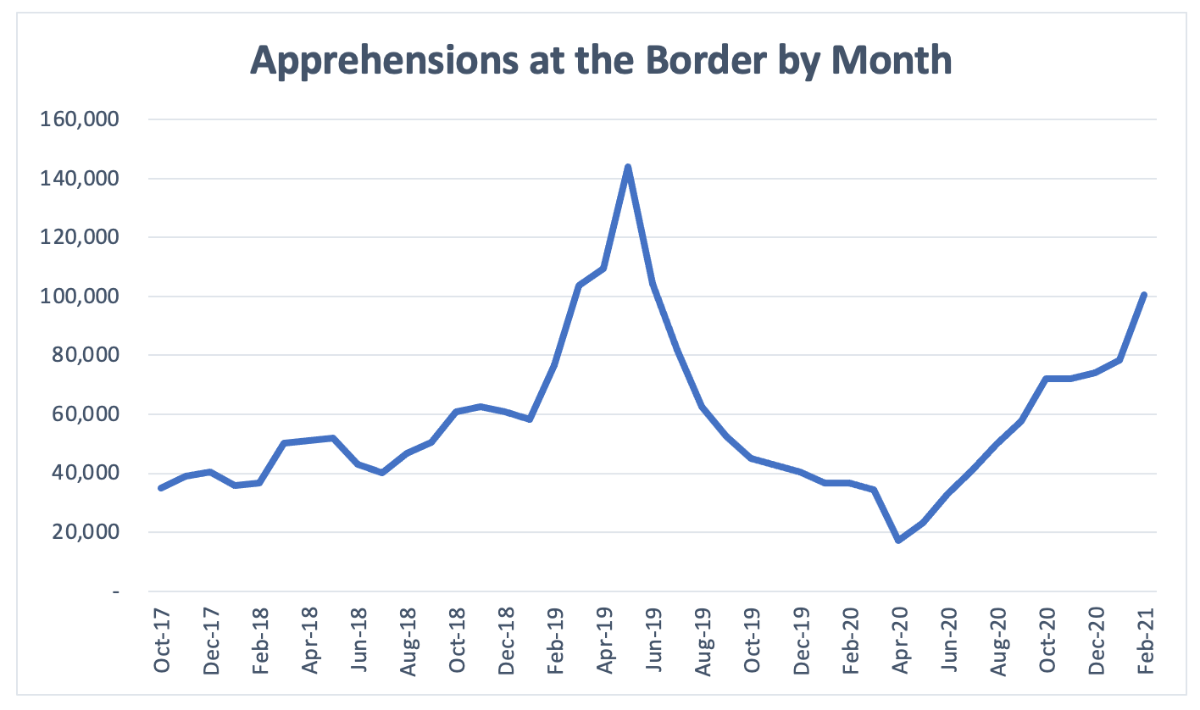
Whether or not that sharp one-month increase (which is expected to continue rising throughout the year) constitutes a “crisis” is up for debate. But there are other factors that are important to keep in mind: one of them is who is crossing the border. Under the Trump administration, the 2019 rise in migrants was fueled by adults crossing the border.
But in February, according to the Associated Press, 29% of CBP apprehensions were families and children, more than double the percentage from January. There was a sudden increase in unaccompanied minors trying to cross the border as well, which has only shot up further in March (to more than 11,000 so far in the month). Children legally require greater care, and the U.S. simply did not have enough space or resources to house the influx of kids. The fact that so many of the border-crossers in the Biden era have been children — and that some of them have been kept in crowded, jail-like conditions — is one additional reason, not necessarily reflected in a first glance at the data, that some have referred to the situation as a humanitarian crisis.
Do you have a burning question about politics? Send it over to gabe@wakeuptopolitics.com and it might get answered in the newsletter! Don’t forget to include your first name and where you’re from.
Daybook
All times Eastern.
Executive Branch
President Joe Biden and Vice President Kamala Harris will receive the President’s Daily Brief at 10 a.m. and have lunch together at 12:30 p.m. Then, they will meet at 2 p.m. with Secretary of Homeland Security Alejandro Mayorkas, Secretary of Health and Human Services Xavier Becerra, and other advisers on immigration.
At 3:30 p.m., Harris will convene a roundtable discussion with women leaders of advocacy organizations to mark Equal Pay Day. At 4:15 p.m., the president and First Lady Jill Biden will host an Equal Pay Day event with members of the U.S. Soccer Women’s National Team.
— Second Gentleman Doug Emhoff will travel to St. Louis, Missouri, to promote the American Rescue Plan.
— White House Press Secretary Jen Psaki will hold a press briefing at 12:30 p.m. She will be joined by Cecilia Rouse, the chair of the White House Council of Economic Advisers, and Heather Boushey, a member of the council.
Secretary of State Antony Blinken is in Brussels, Belgium, for a summit of NATO foreign ministers. He will meet with his counterparts from Turkey, Estonia, Latvia, Lithuania, and the European Union, as well as with the president of the European Commission. He will also deliver remarks at 10:30 a.m.
U.S. public health officials will hold a press briefing at 10:30 a.m. on COVID-19 response. Participants will include Dr. Anthony Fauci, the chief medical advisor to the president; Dr. Rochelle Walensky, the CDC director; and Andy Slavitt, a White House senior advisor for COVID-19 response.
Legislative Branch
The Senate will convene at 10:30 a.m. Following Leader remarks, the chamber will begin consideration of the nominations of Rachel Levine to be Assistant Secretary of Health and Human Services and David Turk to be Deputy Secretary of Energy. The Senate will hold cloture votes to advance the nominations at 11:30 and then, if those are successful, confirmation votes on both at 4:45 p.m.
If approved, Levine would be the first openly transgender person to hold a Senate-confirmed position in U.S. history.
— The Senate Banking Committee will hold a hearing at 10 a.m. on the administration of the CARES Act, the $2.2 trillion stimulus package passed last March. Treasury Secretary Janet Yellen and Federal Reserve Chairman Jerome Powell will testify.
— The Senate Rules Committee will hold a hearing at 10 a.m. on S.1, the Senate version of the sweeping democracy reform package penned by congressional Democrats. Senate Majority Leader Chuck Schumer and Minority Leader Mitch McConnell will both be on hand; party leaders rarely attend Senate hearings.
— The Senate Armed Services Committee will hold a hearing at 2:30 p.m. on sexual assault in the military.
The House is not in session.
— The House Homeland Security Committee will hold a hearing at 9:30 a.m. on state and local responses to domestic terrorism after the U.S. Capitol attack. Michigan Attorney General Dana Nessel and Nevada Attorney General Aaron Ford will testify.
— The House Energy and Commerce Committee will hold a hearing at 11:30 a.m. on the power outages in Texas last month. Houston Mayor Sylvester Turner and Electric Reliability Council of Texas (ERCOT) President Bill Magness will testify.
Judicial Branch
The Supreme Court will hear oral arguments at 10 a.m. in Caniglia v. Strom.
“Most of the time, the Fourth Amendment requires police officers to get a warrant before searching people,” WUTP legal contributor Anna Salvatore explains. “This morning, though, the justices will hear arguments about the ‘community caretaker’ exception, which holds that officers don’t need a warrant if they’re helping people in distress. Today’s case concerns officers who performed a wellness check on a man’s home after he drew a gun and asked his wife to shoot him. The man argues that though ‘community caretakers’ may be able to search a car, they had no right to search his home without a warrant.”
Campaign Trail
Former President Donald Trump will attend a fundraiser at 7 p.m. for Ohio congressional candidate Max Miller at his Mar-a-Lago club in Palm Beach, Florida, according to Punchbowl News. Miller, a former Trump White House aide, is mounting a GOP primary challenge against Rep. Anthony Gonzales, who voted for Trump’s impeachment earlier this year.
Thanks for waking up to politics! If you enjoy reading this newsletter, I’d be so grateful if you’d consider donating to help support me and my work. If you want to show off your support for Wake Up To Politics, you can also buy some merchandise.
Also: don’t forget to tell your friends and family to sign up for the newsletter at wakeuptopolitics.com. And if you have any questions or comments, feel free to email me at any time.

